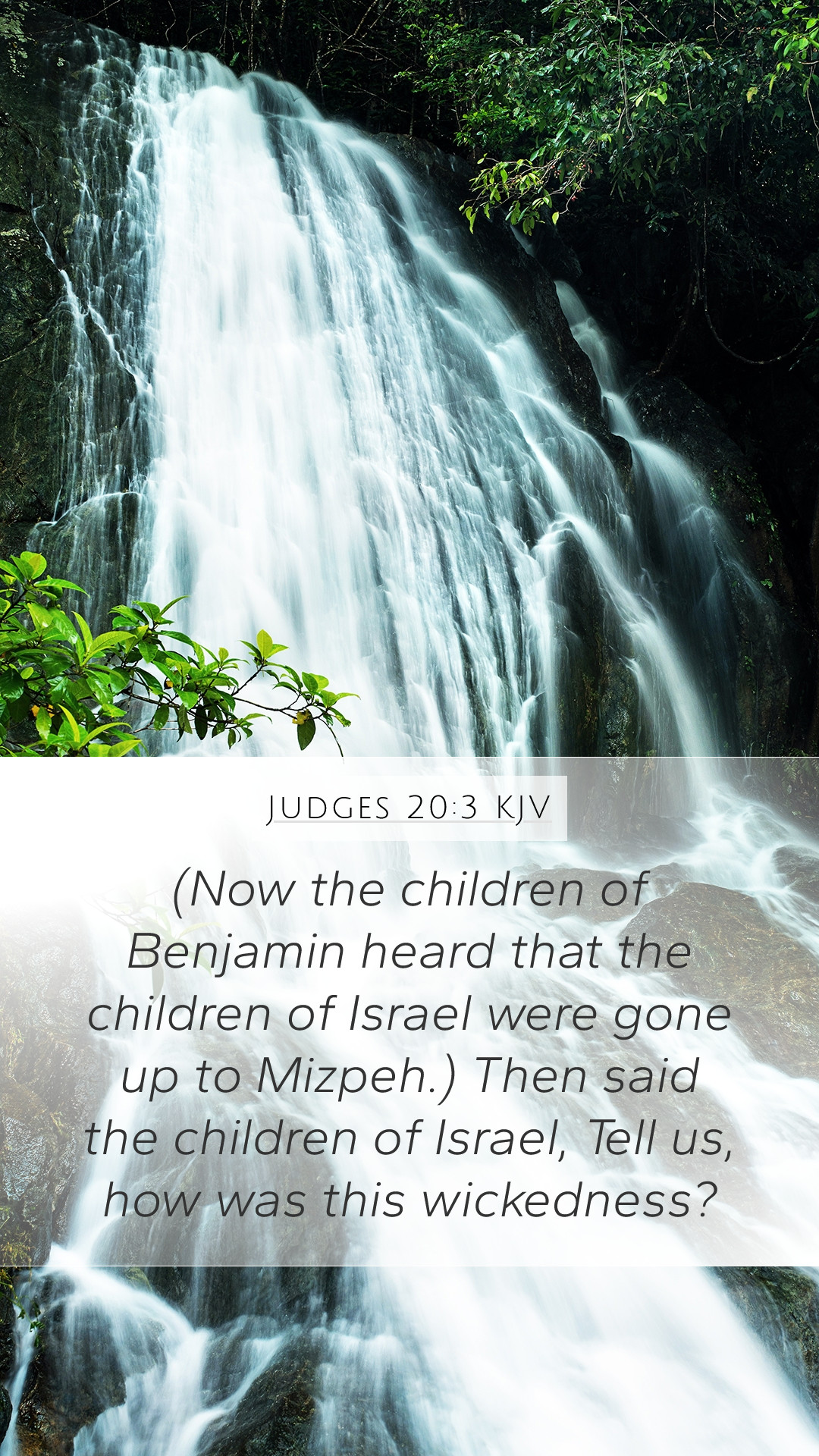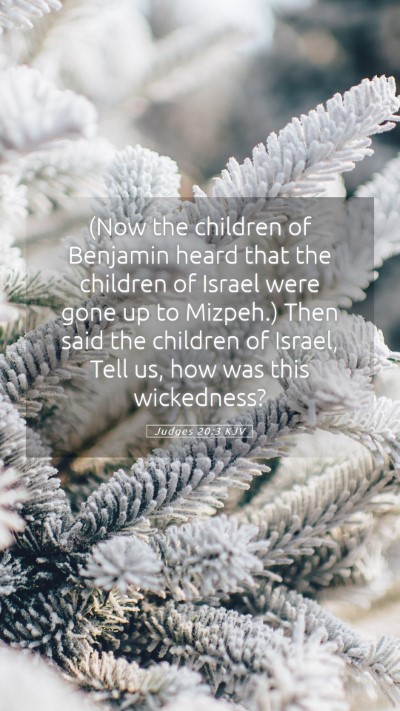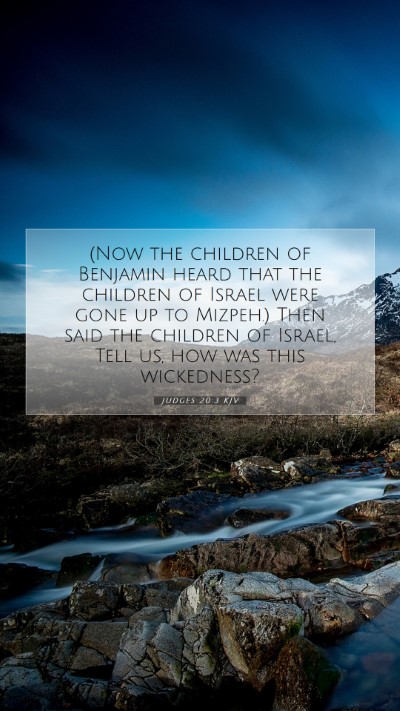Bible Verse Meaning: Judges 20:3
Judges 20:3: "Now the children of Benjamin heard that the children of Israel had gone up to Mizpeh. Then the children of Israel said, 'Tell us, how did this wicked deed happen?'"
Overview
This powerful verse signifies a pivotal moment in the book of Judges, where a national crisis compels the tribes of Israel to gather and seek justice for a grievous act committed in the territory of Benjamin. Understanding this scripture requires attention to both its immediate context and its implications in the broader narrative of Israel's history.
Bible Verse Interpretations
-
Matthew Henry's Commentary:
Henry emphasizes that this assembly represented a united front among the Israelite tribes, seeking to address the wickedness that had emerged in their midst. It signifies collective responsibility and the necessity of communal action in response to sin.
-
Albert Barnes' Notes:
Barnes notes that the inquiry into the nature of the wicked deed highlights the grave situation within Israel, illustrating how the sin of one can lead to widespread consequences. This sets the stage for the ensuing conflict and serves as a reminder of the seriousness of moral integrity.
-
Adam Clarke's Commentary:
Clarke details the historical and cultural context, noting that the gathering at Mizpeh was not only about accountability but also about restoring justice. He argues that the unity of the tribes reflects the importance of collective governance in the face of societal breakdown.
Understanding Scripture
The essence of Judges 20:3 revolves around themes of justice, accountability, and unity among God's people. It prompts readers to reflect on how communities can come together to address moral failings and the importance of seeking truth in the midst of conflict.
Scripture Analysis
This verse serves as a crucial anchor point for understanding the larger context of the events that transpire in Judges 20. The tragic events leading to this assembly speak volumes about the spiritual and moral decay present in Israel at the time.
Biblical Exegesis
A closer examination reveals that the phrase "the children of Benjamin heard" instantiates the seriousness of the situation; it indicates that the tribe was being made aware of the other tribes' actions against the sinful behavior that originated from their midst. It highlights accountability at a tribal level.
Bible Study Insights
Engaging with this verse in Bible study groups can foster discussions surrounding community responsibility, the role of justice in a society, and the significance of addressing moral decay before it escalates further. Participants can reflect on how the principles observed in Judges apply to modern societal issues.
Related Cross References
- Genesis 49:27: The prophecy concerning the tribe of Benjamin.
- Judges 19:22-30: The account of the wicked deed that led to this assembly.
- Deuteronomy 13:12-15: Instructions on handling idolatry and wrongdoing within the tribes.
Practical Application
This verse challenges modern readers to think critically about justice and accountability in their communities. It asks us to consider how we address wrongdoing and whether we collectively seek truth and righteousness, echoing the collective actions that the tribes of Israel took at Mizpeh.
Conclusion
In summary, Judges 20:3 calls for a deep understanding of the importance of unity, accountability, and the moral fabric of communities. It reminds us that the wickedness of one can become a communal crisis and that seeking the truth is paramount in the pursuit of righteousness. In our Bible studies, let us seek to embrace these lessons and apply them to our lives, ensuring that we remain vigilant against moral failures and always pursue justice.


